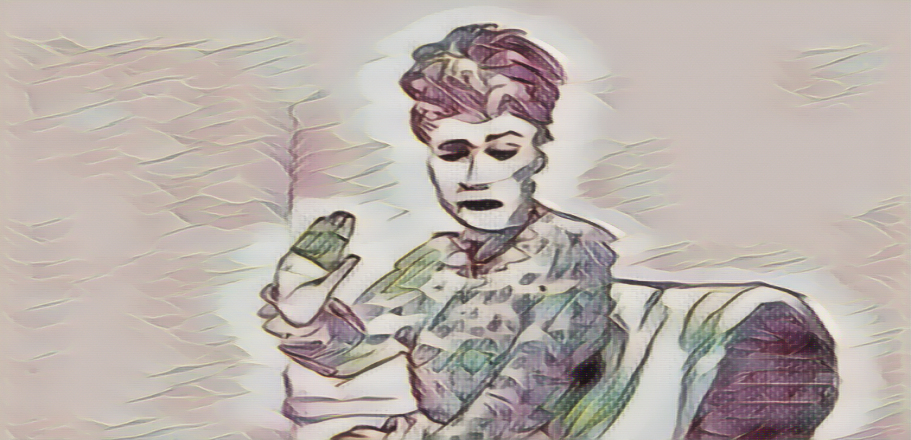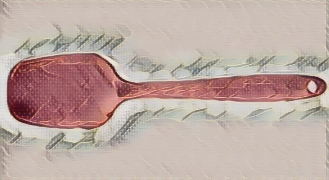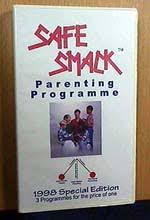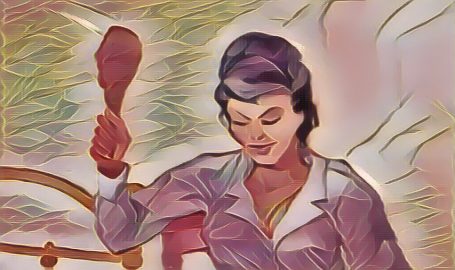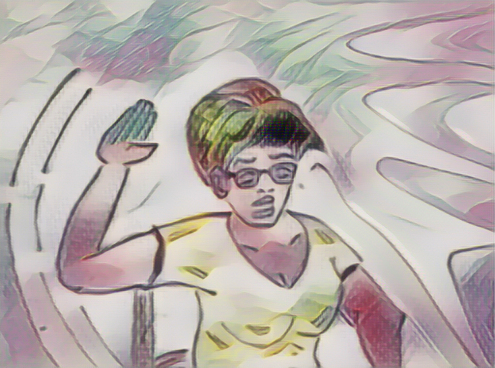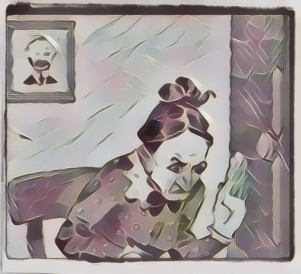Sometimes, we would accidentally hit the ball against the side of Miss Cripps’ bungalow. When that happened, she would come out and threaten to give us a good hiding – but we would just run off, laughing at her.
On one particular day, I was on my own on this patch of grass, as no one else was about. I was wearing my new Manchester United football kit that I got for my birthday. So there I was, imagining I was George Best on the attack, and I struck the ball beautifully.
Unfortunately, it sailed right over Miss Cripps’ garden wall.
I guessed that Miss Cripps wasn’t in – I had already hit her wall earlier and she never came out to threaten me with a smacked bottom – so I quickly scaled the wall. When I got on top, I immediately saw that my football had ended up next to a tempting patch of strawberries. I dropped down into the garden and, leaving my football to one side for a moment, I began helping myself to Miss Cripps’ strawberries. They were absolutely delicious.
I was so engrossed in eating the lovely red berries that I didn’t hear Miss Cripps suddenly appear behind me. “Right Peter, I’ve got you now, you naughty boy!” She grabbed my arm and smacked my bottom hard through my shorts, then led me into her bungalow, applying a few more firm spanks in the process.
Miss Cripps’ approach to discipline was shaped by her faith. She believed that children needed clear boundaries, and that consequences for wrongdoing should be swift and memorable. She often quoted Proverbs, saying, “Foolishness is bound in the heart of a child; but the rod of correction shall drive it far from him.” To her, a smacked bottom was not an act of anger, but of guidance—a way to teach right from wrong and to save a child from greater trouble later in life.
Finally, she looked down at me. “Well, Peter, what do you think your mother will have to say about this, stealing from my garden? You’re a very naughty boy!”
I knew very well what my mother would say, and that it would end in a very sore bottom for me, possibly even the belt from Dad. “Please, Miss Cripps, don’t tell my mother! I’m really sorry!”
“We’ll have to see just how sorry you are,” Miss Cripps replied. “You can take off those muddy boots and socks for a start!” I obeyed, and while I was taking them off, Miss Cripps pulled out a dining chair and sat down on it. She had a light summer dress on and once she was seated, she pulled the skirt clear of her lap.
It was bad enough that my own mother still saw me like this when I was put across her knee for a smacked bottom, let alone Miss Cripps, but I was completely helpless and at her mercy.
She put me across her knee with practiced ease – I’m sure she probably smacked other children at the Sunday school occasionally, despite having none of her own. Her left hand went around my waist and under my tummy to hold me in position and despite my age, my feet didn’t touch the floor and I fitted more like someone younger across Miss Cripps’ knee.
I remember looking down at the floor and seeing Miss Cripps’ large, bare feet, her toenails painted bright red. Then she set about turning my bottom pretty much the same color. Her large hand began smacking my bottom hard – boy, could she smack! She covered every inch of my bottom.
The first smack landed with a sharp sting, echoing in the quiet room. I gasped, the shock of it making my eyes water instantly. Miss Cripps didn’t pause—her hand rose and fell in a steady rhythm, each slap landing with a crisp, unmistakable sound. The heat built quickly, spreading across my skin, and I could feel my face burning with embarrassment as much as my bottom burned with pain. I kicked my legs and squirmed, but her grip was firm, holding me in place as if I were much younger. My shorts and pants slipped further down with every wriggle, until they were bunched around my ankles, leaving me completely exposed and mortified. Tears streamed down my cheeks, hot and fast, as I sobbed and pleaded for her to stop. But Miss Cripps was relentless, her voice stern but not unkind as she scolded me for my naughtiness. “I’ve waited a long time to get you across my knee, Peter,” she said, punctuating her words with sharp smacks to the tops of my thighs. The pain was sharp, but it was the humiliation that stung the most—knowing that I was being punished like a little boy, helpless and overpowered. My cries grew louder, echoing off the walls, and I could barely catch my breath between sobs. The room seemed to shrink around me, the only thing I could focus on was the burning in my backside and the overwhelming sense of shame. My legs kicked helplessly, but Miss Cripps simply told me to “stay still and take it like a big boy.” I felt utterly defeated, my pride in tatters, and all I could do was cry and promise never to steal again.
Miss Cripps believed that true Christian discipline was not about cruelty, but about love and responsibility. She saw herself as a shepherd guiding her flock, and she felt it was her duty to correct wayward behavior firmly but fairly. She often explained to parents at Sunday school that a child who was never corrected would grow up selfish and unruly, and that a little pain now could prevent much greater suffering later. She was convinced that corporal punishment, when done calmly and with explanation, was a form of care—an act of tough love that reflected God’s own discipline of His children.
“Your friends would be laughing at you now, wouldn’t they?” she asked. “Over my knee with your pants down getting a smacked bottom?”
After what felt like an eternity, my resistance faded. My legs stopped kicking, my sobs softened to whimpers, and I just lay limply across her lap, exhausted and broken. The pain in my bottom throbbed with every heartbeat, and I could feel the heat radiating from my skin. I was still crying, but now it was more from the overwhelming emotion than the pain itself. I begged her to stop, promising over and over that I was sorry, that I’d never do it again, that I’d be good from now on. The shame of being so completely at her mercy, of being punished so thoroughly, was almost too much to bear. I felt small, vulnerable, and deeply sorry for what I’d done.
Eventually, she stopped spanking and rested her now very warm hand on my even warmer buttocks. “Right, Peter,” she said, “I think you have been sufficiently punished for now. I won’t tell your mother about this – but I expect to see you in Sunday school next week. Do you understand?”
I nodded – I would have promised anything not to put my bottom in more peril. Miss Cripps had talked to my mother before about me going to Sunday school, and I knew mother was keen on the idea. However, as I had rebelled against it, she had dropped the subject. Now, if I didn’t go, the least I could expect would be another well-smacked bottom – this time at home.
Miss Cripps still had me across her knee. She had a Bible to hand and while I was still over her lap, she opened it and read out loud several verses about the corporal punishment of the younger generation. She explained, in a calm and measured tone, that the Bible was clear about the importance of discipline. “The Lord disciplines those He loves,” she read, “and He chastens everyone He accepts as His child.” She told me that her actions were not out of anger, but out of a sense of duty to God and to me, to help me grow into a good and honest person.
She gave my bottom one last light slap. “Right, Peter – up you get.” My legs trembled as I stood, my face streaked with tears. She pulled me into a gentle hug as I had one last little cry, and she softly sang a hymn to comfort me. The warmth of her embrace was oddly soothing after the ordeal, and for a moment, I felt safe again. Finally, Miss Cripps kissed the top of my head and smacked my behind again lightly. “Now, you be a good boy and I’ll see you in school on Sunday.”
I collected my football and walked home, ruefully rubbing my very sore bottom, which was now as bright red as those lovely strawberries. The sting lingered with every step, a vivid reminder of the lesson I’d learned that day—and of Miss Cripps’ unwavering belief that Christian discipline, though painful in the moment, was always meant for the good of the soul.



